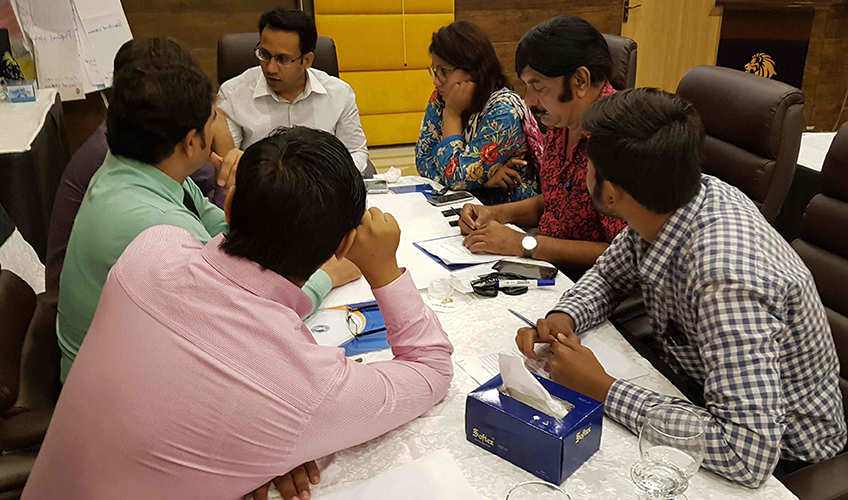A place for the dead to be laid to rest in Pakistan
The minority Sikh community in Peshawar, Pakistan, have taken the first crucial step toward securing a Shamshan Ghat (cremation ground) to lay the dead to rest after years without a dedicated space in their home city.

International Alert established Inclusive Media Forums (IMF) as a way of bringing together media, community, political and other civil service stakeholders. Through the IMF, localised issues can be raised through the media that may not otherwise be reported.
After representatives of the Peshawar Sikh community raised their struggle to provide the customary funeral rituals for their dead at an IMF meeting in May 2017, the IMF member journalists launched a two-week media campaign to highlight the issue in the media and political spheres in the run up to the announcement of the provincial budget.
Five IMF journalists took up the issue in Daily Jang, Nai Baat, Daily Mashraq, Pakistan Today, Mashraq TV, Mashal Radio and their websites. Sartaj Khan, opposition Member of the Provincial Assembly likewise raised the problem within his circle of political influence.
This short but focused campaign, alongside the continued engagement of IMF members with policy-makers, gained enough attention that the following month the provincial government agreed to allocate funds for the Shamshan Ghats in Peshawar of 100 million rupees (US$90.5k) with development now under way.
“The success of our campaign to build a Shamshan Ghat in Peshawar shows the positive role the media can play in supporting marginalised groups to have a voice and to promote an inclusive democracy,” says our Senior Programme Officer Shahab Khalid.
About the project
This project, Inclusive, objective and responsible journalism in Pakistan, aims to tackle inter-communal violence by building the capacity of journalists to safely promote tolerance for diversity, and report on complex issues without creating tensions between or within communities.
Working across the country, in partnership with Journalists for Democracy and Human Rights (JDHR), the project will train more than 500 journalists, as well as minority rights activists. It will also commission news articles, videos and blogs on minority rights themes.
Because journalists avoid reporting on sensitive subjects for fear of provoking threats or intimidation, a database of evidence of such threats will be created and used to lobby security providers to improve security for journalists.





